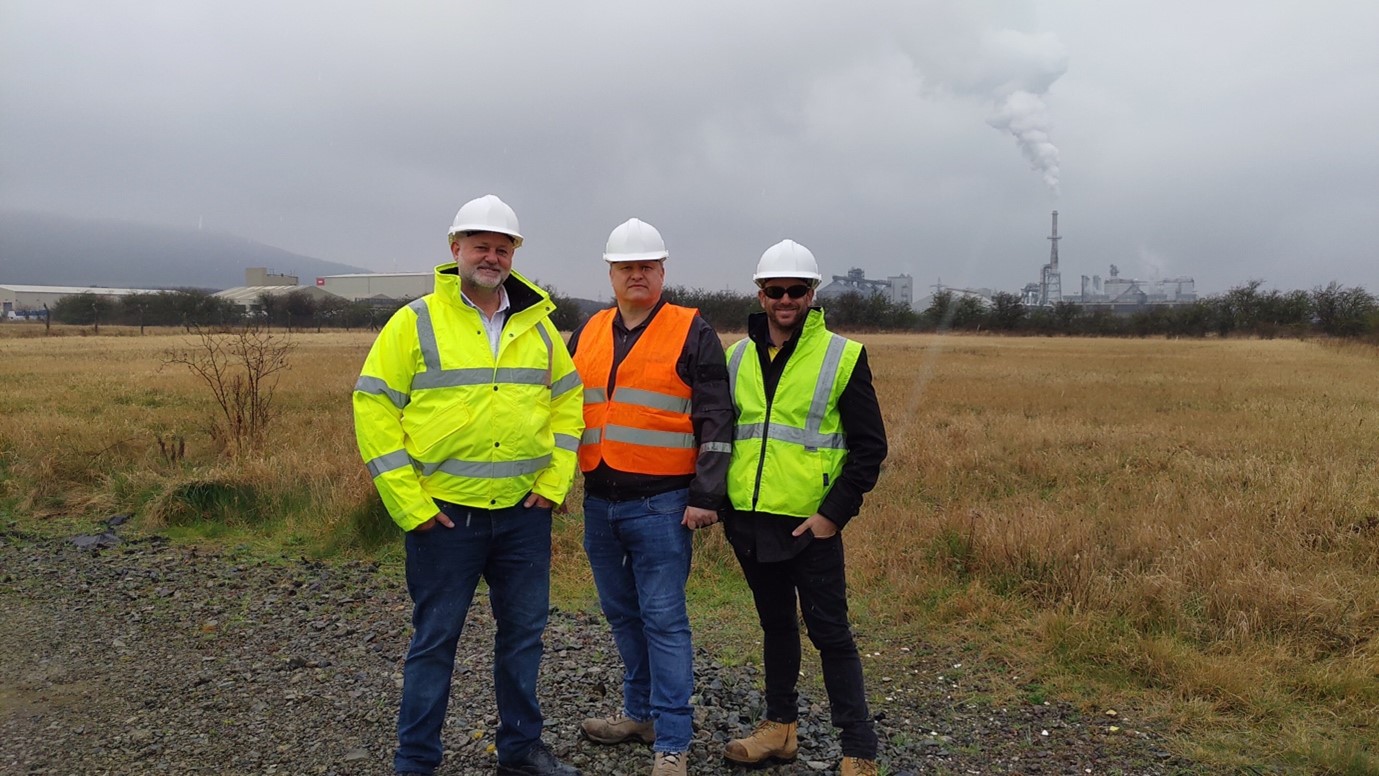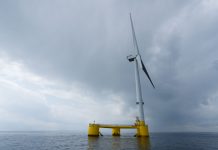Plans are advancing at Britain’s biggest new freeport to open Europe’s first sustainable plant making lithium hydroxide for batteries.
Tees Valley Lithium, a wholly-owned subsidiary of investors Alkemy Capital, has signed papers guaranteeing exclusive rights to a 20-acre plot to build the plant at Teesside Freeport. Partners in the venture include Singapore-based developers Sembcorp Energy.
At peak output due in 2025, the Teesside factory is projected to be making 96,000 tonnes per year of lithium hydroxide for batteries for EVs. That’s equivalent, TVL claims, to 15% of demand forecast across the EU and Great Britain by mid-decade.
Tees Valley Lithium and consultants Wave International are establishing a project team this month to accelerate finalisation of local agreements, and progress towards construction of the lithium plant.
Officials from the commercial partners toured the facility’s plot last week; pictured among them is TVL’s CEO John Walker (left).
Teesport is the biggest and the furthest advanced of an intended eleven freeports announced by the Johnson administration to spur commercial investment. The fifth largest port in the UK and amongst the 10 biggest in Western Europe, it is owned and operated by PD Ports. The company claims it contributes over £1.4 billion to the UK economy each year, exporting more goods than it imports.
Eight sites including Teesport, Liverpool and Hull have been designated as England’s freeports. They are seen by the Johnson administration as critical to its ‘levelling up’ industrial policy for Britain’s regions.
Companies locating in freeport zones as well as their operators will benefit from incentives, including tax reliefs, customs, business rates retention, planning, regeneration, innovation and trade and investment support.
Walker commented: “Tees Valley Lithium is excited to be partnering with world-class companies such as Sembcorp Energy UK and Wave International to establish a major independent and sustainable lithium hydroxide production at the Wilton International chemical park in the Teesside Freeport to supply the burgeoning demand from the electric vehicle industry”.





That is interesting! Right now, it’s no secret that access to battery quality lithium salts by Asian lithium ion battery manufacturers is tightly contested. China has the dominating role in global supplies of lithium.
So where is the lithium product going to come from? If (as one might expect) the source rock is pegmatite from Australia, will the lithium hydroxide delivered to the battery manufacturer be carrying the ESG costs of the coal/gas heat required, and the clean up of the waste materials caused by hot, concentrated sulphuric acid also required.?
I am sure my curiosity is shared by many other EnergyInst readers!